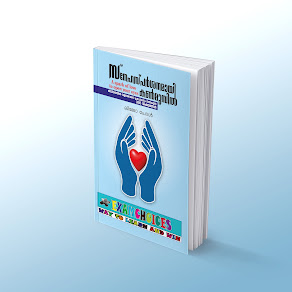RESEARCH ASSISTANT (SOCIOLOGY) SYLLABUS
PART I
UNIT
1:SOCIOLOGY AS A DISCIPLINE
1.Concepts in
Sociology-Society,Community,association,groups,social control,social
change,social stratification,socialization
2.Social institutions-Education,religion,economy and polity
3.Development of sociology-Social and intellectual
forces,Philosophical foundations,rationalism and empiricism,public sociology
4.Sociology in India-Subaltern perspective(Ambedkar),Structural
functional(M N Srinivas),Marxian Perspective(AR Desai)
5.Social
Processes-Accomodation,assimilation,co-operation,competition,conflict
UNIT
II:SOCIOLOGICAL THEORIZING
1.Transition from social philosophy to sociology,growth of
science and technology,scientific spirit
2.Theoretical beginning of Auguste Comte and Herbert Spencer
3.Karl Marx-Class and class struggle
4.Theoretical Developments of Emile Durkheim and Max Weber
5.Recent Trends-Jurgen Habermas,Antonio Gramsci,Anthony
Giddens(structuration)
UNIT
III:METHODS IN SOCIAL RESEARCH
1.Social science as a system of rules,science and common
sense,scientific method and its applications
2.Relation between theory and facts
3.Principles of sampling,advantages key terms
4.Techniques of data collection-questionnaire,interview,observation,case
study,focus group interview
5.Interpretation and presentation of data-graphic and
diagrammatic representation
UNIT
IV:DEVELOPMENTAL ISSUES
1.Environmental degradation,global warming,climate
change,deforestation and its impact on Tribals
2.Impacts of globalization on marginalized communities
3.Development induced displacement,new social movements for getting land with
reference to Kerala
4.Role of media in the process of tribal development
5.Policies and programmes for the preservation of tribal
characteristics
UNIT
V:SOCIAL AND CULTURAL ANTHROPOLOGY
1.Meaning and scope of social and cultural
anthropology:Nature,scope and branches of Anthropology,relation with other
Social Sciences-Economics,History,Sociology,Psychology,Archaeology and
Linguistics.
2.Basic Concepts:Culture,Social structure,Social
organization,status and role,political organization,band
,tribe,age-grade,chiefdom,rank-societies,law and justice in simple
societies,customary and codified law,state and stateless societies.
3.Nature of Culture:Attributes and Paradoxes,culture
processes,enculturation,acculturation,diffusion,cultural
pluralism,ethnocentrism,cultural relativism,emic and etic,explicit and
implicit.
4.Family,marriage and
kinship:Concept,definitions,typology,functions,university of family and
marriage,family and household,residence patterns,joint family system and
changing trends,marriage regulations,incest,marriage payments,rules of
descent,kingroups,kinships systems,kinship behavior,kinship terminology.
5.Religious Organization:Evolutionary,Psychological,and
functional approaches,ritual,myth,sacred and profane,religion and life-cycle
rituals,forms of religion in tribal and peasant
societies,animism,animatism,naturism,totemism,magico-religious
functionaries,priest,shaman,sorcerer,witch,distinction between magic religion
and science.
UNIT
VI:METHODOLOGY OF ANTHROPOLOGICAL RESEARCH
1.Field work tradition in Anthropology:Fieldwork tradition
in anthropology,restudy and reinterpretation,contributions of
B.Malinowski,A.R.Radcliffe Brown,W.H.R.Rivers,Levi-Strauss and M.N.Srinivas.
2.Ethnographic approach:Nature of anthropological
fieldwork,getting acquainted with the field,establishment of rapport,learning
and using native language,informants/key informants,ethical dimensions of
fieldwork,distinction between fieldwork and survey,ethnography as a holistic
documentation of culture.
3.Research Design:Identification of broad area of
research,review of literature,formulation of research problem,hypotheses
formulation,determination of sample frame and size,the notion of
control,selection of unit of study,mode
of analysis.
4.Basic Techniques of Data collection:Observation as a
technique,key-infront interview,genealogy-technique and its
application,pedigree
5.Preparation of Anthropological research report:Report
writing,structure,steps and procedure.
UNIT
VII:INDIAN SOCIETY AND CULTURE
1.Culture and Civilization:Culture and civilization,the
emergence of civilization,Indian culture-tribal,folk,peasant and urban
dimensions.
2.Hindu religious and philosophical tradition:Sacred books
of India,Indian social system-Purusharthas and Varnashramadharma,Varna
system,caste system,caste fission,and caste fusion,mobility in caste
system,linguistic diversity and language cultures of India.
3.Approaches to the study of Indian culture and
civilization:Folk –Urban Continuum,Little and Great Traditions;Universalisation
and Parachialisation;Tribe-Caste Continuum,sacred complex,nature-man-spirit
complex.
4.Social
Change:Modernisation,Industrialisation,Urbanization,westernization,sanskritisation,concept
of dominant caste;pecuniarisation,changes in the Indian village communities due
to culture contact and globalization.
5.The Tribes of India:Major Tribes of India with special
reference to the Tribes of Kerala,transformation of tribes;Theories of
transformation-Verrier Elwin to K.S.Singh;Tribal movements,Tribal
issues-forest,land alienation,indebtedness,poverty,illiteracy,displacement and
exploitation by non-tribes.
UNIT
VIII:ECOLOGICAL AND MEDICAL ANTHROPOLOGY
1.Ecological anthropology:Meaning and scope of ecological
anthropology,definition of ecology,ecological community and human ecological
niche,cultural ecology,environmental determinism,environmental possibilism,population
ecology,system ecology,ethno-ecology,contributions of
Wissler,Forde,Steward,Vayda and Rappaport.
2.Habitat,economy and Society:Food
gathering,collection,hunting and fishing,pastoralism,shifting
cultivation,peasantry,agriculture,industrial economies.
3.Exchange and Service:Barter,ceremonial
exchange,reciprocity,redistribution(Gift,Potlatch,Kula ring),Jajmani
system;Consumption pattern in subsistence economies,wealth status and social
differenetiation,economic change and adaptation in societies.
4.Medical anthropology:Meaning and scope of medical
anthropology,concept of health and disease in India-Tribal,rural and urban
categories,socio-cultural dimensions of illness,ethno-medicine,magico-religious
curative practices and indigenous medical care services.
5.Application of Medical anthropology:Application of
anthropological knowledge in promoting health care in tribal and rural
communities,health care system and health care services,health
education,psycho-somatic and mental disorders
PART II:GENERAL
KNOWLEDGE,CURRENT AFFAIRS & RENAISSANCE IN KERALA
Salient
Features of Indian Constitution
Salient features of the Constitution –Preamble-Its
significance and its place in the interpretation of the
Constitution.Fundamental Rights-Directive Principles of State Policy-Relation
between Fundamental Rights and Directive Priniciples-Fundamenal
Duties.Executive-Legislature-Judiciary-Both at Union and State Level.Other
Constitutional Authorities.Centre-State Relations-Legislative-Administrative
and Financial.Services under the Union and the States.Emergency
Provisions.Amendment Provisions of the Constitution.
Social
Welfare Legislations and Programmes
Social Service Legislations like Right to Information
Act,Prevention of atrocities against Women & Children,Food Security
Act,Environmental Acts etc.and Social Welfare Programmes like Employment
Guarantee Programme,Organ and Blood Donation etc.
RENAISSANCE
IN KERALA
Towards A
New Society
Introduction to English education-various missionary
organizations and their functioning-founding of educational
institutions,factories,printing press etc.
Efforts To
Reform The Society
A.Socio-Religious
reform Movements
SNDP Yogam,Nair Service Society,Yogakshema Sabha,Sadhu Jana
Paripalana Sangham,Vaala Samudaya Parishkarani Sabha,Samathwa Samajam,Islam
Dharma Paripalana Sangham,Prathyaksha Raksha Daiva Sabha,Sahodara Prasthanam
etc.
B.Struggles
and Social Revolts
Upper cloth revolts.Channar agitation,Vaikkom
Sathyagraha,Guruvayoor Sathyagraha,Paliyam Sathyagraha.Kuttamkulam
Sathyagraha,Temple Entry Proclamation,Temple Entry Act,Malayalee Memorial
,Ezhava Memorial etc.Malabar riots,Civil Disobedience Movement,Abstention
movement etc.
Role of
Press in Renaissance
Malayalee,Swadeshabhimani,Vivekodayam,Mithavadi,Swaraj,Malayala
Manorama,Bhashaposhini,Mathrubhumi,kerala
Kaumudi,Samadarshi,Kesari,Al-Ameen,Prabhatham,Yukthivadi,etc
Awakening
Through Literature
Novel,Drama,Poetry,Purogamana Sahithya Prasthanam,Nataka
Prashtanam,Library Movement etc.
Women and
Social Change
Parvathi Nenmenimangalam,Arya Pallam,A V Kuttimalu
Amma,Lalitha Prabhu Akkamma Cheriyan,Anna Chandi,Lalithambika Antharjanam and
others
Leaders of
Renaissance
Thycaud Ayya Vaikundar,Sree Narayana Guru,Ayyan
Kali,Chattampi Swamikal,Brahmananda Sivayogi,Vagbhadananda,Poikayil
Yohannan(Kumara Guru) Dr Palpu,Palakkunnath Abraham Malpan,Mampuram
Thangal,Sahodaran Ayyappan,Pandit K P Karuppan,Pampadi John Joseph,Mannathu
Padmanabhan,V.T.Bhattathirippad,Vakkom Abdul Khadar Maulavi,Makthi
Thangal,Blessed Elias Kuriakose Chavara.Barrister G P Pillai,TK
Madhavan,Moorkoth Kumaran,C.Krishnan,K.P.Kesava Menon,Dr.Ayyathan Gopalan,C V
Kunjuraman,Kuroor Neelakantan Namboothiripad,Velukkutty Arayan,K P Vellon,P K Chathan
Master,K Kelappan,P.Krishna Pillai,A.K.Gopalan,T.R.Krishnaswami Iyer,C.Kesavan
,Swami Ananda Theerthan,M C Joseph,Kuttippuzha Krishnapillai and Others
Literary
Figures
Kodungallur Kunhikkuttan Thampuran,KeralaVarma Valiyakoyi
Thampuran,Kandathil Varghese Mappila.Kumaran Asan,Vallathol Narayana
Menon,Ulloor S Parameswara Iyer,G Sankara Kurup,Changampuzha Krishna
Pillai,Chandu Menon,Vaikom Muhammad Basheer.Kesav Dev,Thakazhi Sivasankara
Pillai,Ponkunnam Varky,S K Pottakkad and others.
GENERAL
KNOWLEDGE AND CURRENT AFFAIRS
General Knowledge and Current Affairs
NOTE:It May be noted that apart from the topics detailed
Above,questions from other topics prescribed for the
educational qualification of the post may also appear in the question
paper.There is no undertaking that all the topics above may be covered in the
question paper.










A friend will be honest with you about your flaws and suggest how to improve them.-Jerry Bruckner.
ReplyDeleteKERALA PSC ,UPSC Civil service online practices available .Don’t forget our Youtube Channel Subscribe.